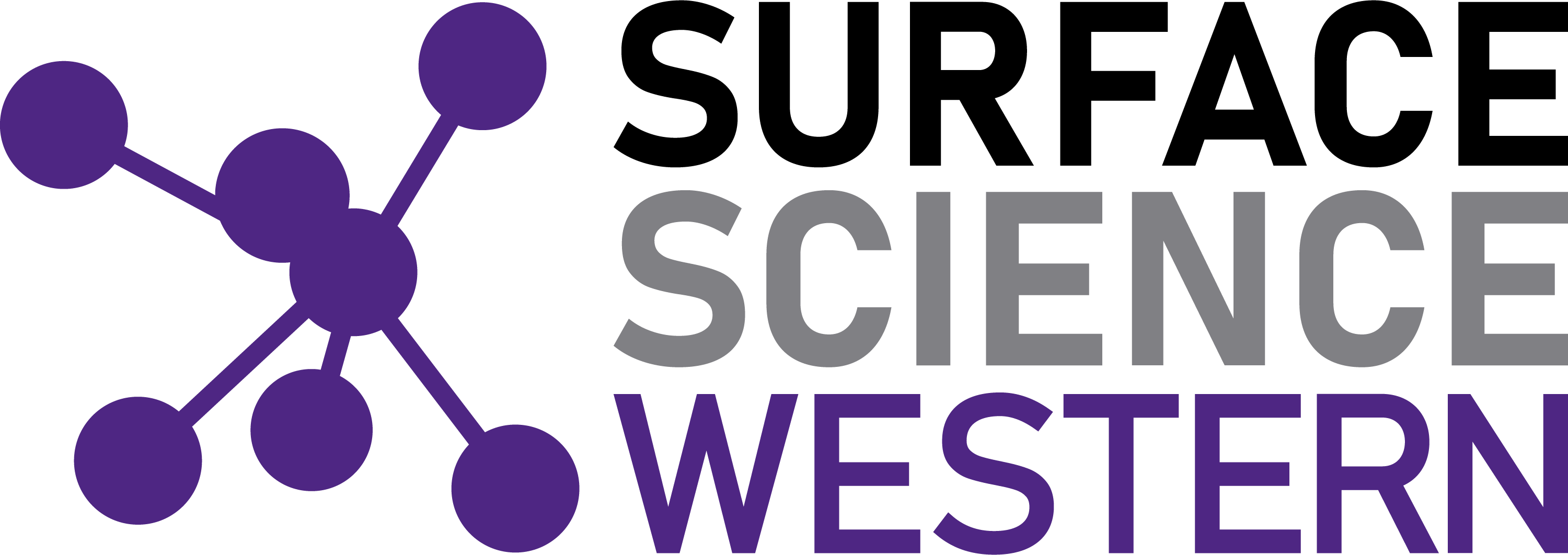In 2016, Surface Science Western celebrated 35 years of research in the surface sciences and service and support to industries. As part of the celebration we have worked with Surface and Interface Analysis for the last two years towards a special issue of a collection of 19 articles from authors who have had close connections with the laboratory. The special issue, published as the 13th issue of the journal’s 49th volume(2017), presents an accurate view of the multifaceted research areas in which SSW has been involved in the past 35 years.
A big thank you to SSW scientist Dr. Heng Yong Nie and former SSW Director Dr. Stewart McIntyre for organizing this special issue. Below is their foreword for this issue.
Foreword: Celebrating the 35th Anniversary of Surface Science Western
Surface Science Western (SSW) is a self-sustaining facility at The University of Western Ontario in London, ON, Canada, specializing in surface analysis and materials characterization. Since its inception in 1981, SSW has been providing analytical consultancy to industrial clients and academic researchers, while at the same time, training students and maintaining research programs in a wide range of surface- and materials-related areas. In 2016, SSW celebrated both 35 years of research in the surface sciences and unparalleled service and support to industries (https://ssw-staging.sci.uwo.ca/ssws-35th-anniversary-celebrations-keynote-address). This volume is a collection of 19 articles from authors who have had close connections with the laboratory, as graduate students, postdoctoral fellows, independent academic and industrial scientists or as staff members both past and present. We thank them all for their efforts in continuing to promote and advance the surface-related sciences, for their well-crafted articles that do credit to their own careers and for their kind recognition of SSW’s part in shaping their scientific lives.
The articles present an accurate view of the multifaceted research areas in which SSW has been involved in the past 35 years. For example, a review article demonstrates the transfer of research results to commercialization and knowledge enrichment in the XPS area. XPS has indeed been a strong area of research and applications within SSW. Following the review are articles showcasing the development of analytical approaches on, and applications of, XPS. There are three articles that are based on the results provided for our industrial clients in the areas of defects and materials failure analyses, including plastic water piping, adhesion promoter layers, and paint craters. Another expertise developed at SSW is covered by three articles discussing quantitative analyses of gold-containing ores using dynamic SIMS and ToF-SIMS exploration of surface chemistry associated with flotation and extractive metallurgical processes. In the materials research area, we have articles dealing with imaging techniques applied in geology, biogeochemistry, corrosion protection, alumina, and superhydrophobicity, following which is an article summarizing the self-assembled monolayers methodology developed at SSW, and ToF-SIMS data interpretation towards understanding chemical structures of polymers. The article showing the application of Laue diffraction in mapping the microscopic mechanical stress in an alloy concludes this special issue.
We thank Professor John F. Watts, the Editor-in-Chief, for providing us with the opportunity to share our achievements with the readership, and Mr. Paul Trevorrow, Executive Journals Editor, Wiley, for helping us shape this special issue. We also thank the reviewers for their contributions to this issue by providing their constructive comments and suggestions to the manuscripts.

